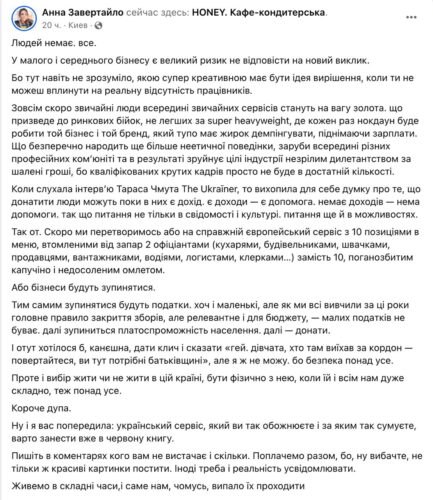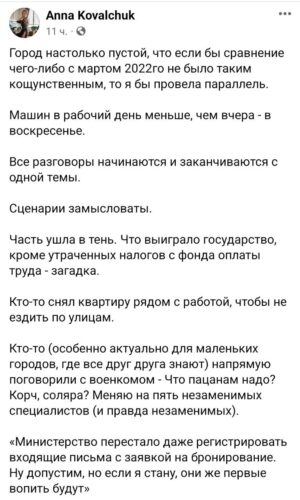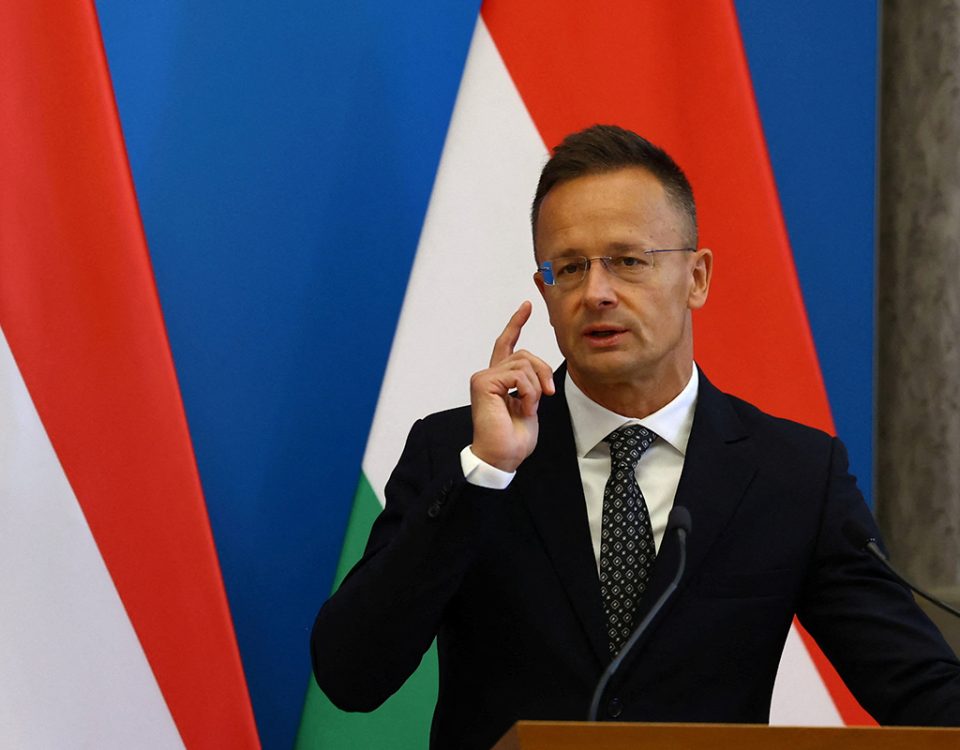
Ukrainian President Zelensky is not being told the whole truth about the Russian offensive near Kharkiv – The Economist
May 21, 2024
Scholz is against ‘foaming at the mouth’ to promise Ukrainians protection with NATO air defense systems
May 21, 2024The owner of popular establishments in Kyiv, Anna Zavertailo, writes about the acute shortage of employees following the enactment of the law on tightening mobilization.
“Small and medium-sized businesses face a significant risk of not being able to respond to the new challenge. Very soon, ordinary people in ordinary services will become highly valuable. This will lead to market battles, where businesses and brands with the financial cushion to undercut prices by raising wages will come out on top. This will undoubtedly create even more unethical behavior and ultimately destroy entire industries with immature dilettantism for exorbitant money because there simply won’t be enough qualified, skilled personnel,” Zavertailo writes.


She believes that as a result, doing business will become significantly more difficult or simply impossible. This will lead to a decline in tax collection and voluntary donations to the army. Businesses cannot call on women abroad to return and work in Ukraine because it is unsafe due to the shelling.
In the comments, entrepreneurs add that it has become not only “impossible to find workers,” but also “no one to serve.”
Journalist Anna Kovalchuk writes that after the new mobilization law came into effect, Kyiv has become empty.
“The city is so empty that if comparing anything to March 2022 wasn’t so blasphemous, I would draw a parallel. There are fewer cars on a weekday than there were yesterday – on Sunday,” Kovalchuk writes.
According to her, “all conversations (among Kyiv residents) start and end with one topic.”
She also describes what conscripted Ukrainians have started to do.
“Some have gone underground. What has the state gained, besides lost payroll taxes – is a mystery. Some have rented apartments close to work to avoid traveling through the streets. Some (especially relevant in small towns where everyone knows each other) have directly talked to the military commissar: ‘What do the guys need? A car, diesel? I trade for five indispensable specialists,'” Kovalchuk writes.
According to her business contacts, the Ministry of Defense “has stopped even registering incoming letters with requests for reservations.”






